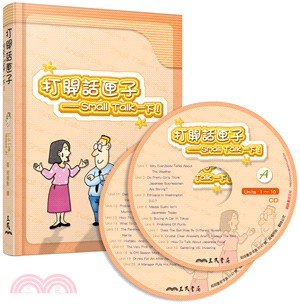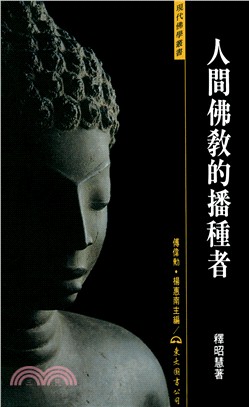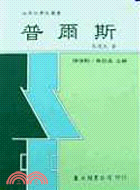相關商品
商品簡介
序
目次
商品簡介
通過對本書的第一篇“英語口語基本結構”的學習,讀者基本上掌握了利用本書所述的英語的三個基本句型,就可以憑已經學過和掌握的單詞,用英語說出自己想說的話,以達到語言交流的目的。在這個過程中,讀者也會發現,在英語的句子中,英語的動詞是至關重要的。本篇通過對國內外近百種英語口語書和托福口語試題的分析和總結,精選出約175個英語口語對話中出現頻率最高的動詞。讀者只要通過本篇掌握和運用這些高頻動詞,就能說出流利的英語,大大提高英語的會話水平。
序
通過對本套書的第一分冊“英語口語基本結構”的學習,讀者想必已經學會了運用已掌握的單詞,套用英文的三個基本句型,就可以開口,用英語說出自己想說的話。現在,我們再來複習一下,怎樣正確使用這三個句型。
英語口語要用完整的句子
在漢語的口頭表達中,我們常常會使用一些沒有主語的句子。但在英語中,這樣的表達是不完整的。現在我們分別來看看這三個句型:
1.“主系表”結構
在“主系表”的句子結構裡,系動詞[現在時am,are,is;過去時was were和將來時will ,shall be(should,would be);現在完成時have(has)been,過去完成時had been]往往在漢語表達時,有時候用“是”,有時候卻沒有“是”,如:
每天在辦公室工作都是很可怕的。Everyday work in the office is terrible
昨天是我母親的生日。It was my mother's birthday yesterday(注意:it常用來表示時間)
自我推薦書(cover letter)應該是簡潔,清晰和有趣的。Cover letter should be simple,clean and interesting
但是,大多數句子在漢語中沒有“是”,它們仍然是“主系表”句型的句子,如:
支票對你來說方便又安全。Checks are very convenient and safe for you
對他來說,大多數的開支都沒有必要。Most of the expenses are not necessary for him
快餐廳在全美國很流行。Fast food restaurants are very popular all over America
而且在那些用不定式作主語的“主系表”句型的句子,漢語也通常不出現“是”,如前一篇說過,不定式作主語時,常用形式主語it,真正的主語放在後面:
要第一次來中國的外國人使用筷子很不容易。It is not easy for a foreigner to use chopsticks when he comes to China for the first time
對中國學生來說,在加拿大找份兼職很容易。It is easy for Chinese students to find a part-time job in Canada
人們外出時使用公共交通非常方便。It is quite convenient for people to use public transportation when they are out
2.“there be”句型
“there be”句型表示“在什麼地方存在有什麼東西”,這種句型也不能隨便省掉後面的主語,或系動詞“be”,如:
近來有許多人在找工作。
Recently there are a lot of people looking for jobs
美國人一年中總有許許多多的派對。
There are always a lot of parties in a year for Americans
在英國有超過800個遊客諮詢中心。
There are over 800 tourist information centers in Britain
3.“主謂賓(狀)”句型
在“主謂賓(狀)”的句型中,漢語口語常常有許多省掉主語的句子,但是在作英語表達時,仍然要使用完整的,帶主語的句子,如:
吃晚飯了嗎?Have you had your supper?
昨日去開會了嗎? Did you attend the meeting yesterday?
步行到那兒要多久? How long will it take to walk there?(這裡it通常用來指時間,天氣等)
在英語感嘆句內,絕大多數感嘆句也要使用完整的句子
在英語口語裡,感嘆句常用what和how引起,不管漢語裡有沒有“是”,它們也要求使用完整的句子,如:
他是多麼好的老師呀!What a good teacher he is!
這是一部多麼有趣的電影呀!What an interesting film it is!
今天天氣多冷呀!How cold it is today!
她唱得多好聽呀!How beautifully she sang!
只有在特別簡潔的表達中,感嘆句才可能省去主語,如:
多好的天呀!What a fine day!
多美呀!How beautiful!
英語口語的祈使句中可以省掉主語
英語祈使句通常用來表示“請求,命令,勸告”等,主語通常可以省掉,但句子的謂語動詞要用原形。
1.在“let's和let”句型:let+第一,第三人稱代詞賓格+不帶to的不定式
讓我來照看你的行李!Let me take care of your luggage!
到哈德森街時告訴我!Let me know when we get the Hudson Street!
讓我們去食堂吧!Let's go to the dining room!
我們去打籃球!Let's go and play basket ball!
2.“please+動詞”句型:
請取消我五月五號的班機。Please cancel my flight for May 5th
請預留一張三人的桌位。Please reserve a table for three
請出示你的護照和機票。Please show your passport and ticket
吃完後請把餐盤放在門外。
Please leave all the dishes outside your room when you finish eating
也可以把“please”放在句尾,如:
Take me to the Hilton Hotel, please請把我送到希爾頓酒店。
Give me a single room, please請給我開個單人房。
3.“thank you for”句型:
Thank you very much for coming to meet me多謝你來接我。
Thank you for picking me up at the railway station
謝謝你到火車站來接我。
4.“動詞+其它成分”句型:
Go straight on this street, turn to the left on the second corner
沿這條街走,到第二街角左轉。
Remember to bring your passbook and passport next time
下次記得帶上你的存摺和護照。
Just be patient, you'll be fine soon耐心一點,你很快會好起來。
Not to bring anything except a bottle of wine
除了一瓶酒,什麼也不用帶。
開會不要遲到。Don't be late for the meeting
別開窗戶。Don't open the window
英語口語主要使用主動語態
英語的語態是用來表示主語和謂語動詞的關係。主動語態表示主語是謂語動詞的執行者;而被動語態表示主語是謂語動詞的承受者。下面請看主動語態和被動語態的區別。
主動語態:The local government only allows overseas students to work in summer當地政府只容許海外留學生在暑期打工。
被動語態:The overseas students are only allowed to work in summer海外留學生只被容許在暑假打工。
英語口語一般是用來表達個人的行為,訴求,個人的感受,所以通常需要使用主動語態,如:
I like to go shopping on season's sales, because you can enjoy a lot of discounts, and the price of many goods will be very cheap
我喜歡在季節促銷的時候去購物,因為你可以享受到許多折扣,很多商品的價格就會很便宜。
只有在主語不是動作的執行人的情況下,原主語就變成了動作的承受人,那時才會使用少量的被動語態的句子,如我們課文裡就有幾句實例:
You're not allowed to bring fruits into Australia
帶水果進澳大利亞是不允許的。
One of my classmates was crashed by a car when crossing the zebra crossing我的一個同學過橫道線時被車撞到了。
Second class stamps can only be used for mails in Britain二等郵資的郵票僅用於寄英國境內的郵件。
英語口語主要使用一般現在時態
英語口語一般都使用一般現在時態。如果說話中間提到過去發生的某件事情,就要使用動詞的過去時;如果提到一件發生在過去,該事件又與現在有關聯;或者說到的是,發生在過去而一直持續到現在的行為,就要使用動詞的現在完成時態(have,has+動詞過去分詞),如美國影星溫斯萊特在“金球獎”頒獎儀式上,對萊納昂多的一段“表白”:
I 'm so happy I can stand here and tell you how much I love you and how much I've loved you for 13 years I love you with all my heart, I really do其中我們聽到了“我那麼愛了你13年”。
如果在說話中提到將來發生的行為,那麼我們就應該用動詞的將來時(shall,will +動詞原形),如:
In America,many students choose to apply for a fulltime job after graduation from the university They will work for two or three years in social practice They can also save a sum of money to support their new degree在美國,很多學生從大學畢業後就會找一份全職工作。他們將工作兩三年作為工作實踐。他們也可以積累一筆錢,以支持攻讀新的學位。
如果我們說的是發生在過去的一件事,那麼所說的一段話,就全部要使用動詞的過去時態,如:
I attended a children's camp in Beijing during the summer vacation The campers were all children from different parts of the world We talked each other in English,which really helped me to improve my spoken English Our life at the camp was really happy and varied暑假期間,我在北京參加了一個兒童夏令營。營員都是來自全世界各地的兒童。我們用英語交談,這樣確實幫我提高了英語口語。我們在夏令營的生活快樂而豐富多彩。
在敘述一段發生在過去的事件中,如果我們說到“將來”,我們就要使用動詞的“過去將來時(should,would +動詞原形)”;如果我們說到發生在過去而延續到說話時的過去的事情,我們就要使用“過去完成時(had +過去分詞)”,如:
Last year, I went to my hometown to visit my parents I also visited my old school I had studied at that school for 6 years Upon graduation, I thought I would come back to my old school to be a teacher Now I'm still studying at a university in the city After I graduate, I will certainly return to my hometown and return to my old school
去年我回老家看父母,我訪問了我的母校,我曾經在那個學校就讀六年,畢業時,我想我會回母校當一名老師。現在,我仍然還在城裡上大學。等我大學畢業,我一定會回到我的家鄉,回到我的母校。
從上面的這段談話可以看到,即使全段使用過去時,只要一談到現在,一談到現在的將來,我們仍然要回到現在時。
說流利的英語,擴大英語動詞量是關鍵
通過對本書第一分冊的學習,我們可以看到,在英語的三個句型中,“主系表”和“there be”這兩個句型的使用只佔了少數。英語絕大部分的句子都採用“主謂賓(狀)”的結構。而在“主謂賓(狀)”句型中,動詞謂語是這一句型至關重要的關鍵。因此,我們必須在提升英語口語的表達能力時,不斷地擴大動詞的詞彙量。本分冊通過對國內外近百種英語口語書和托福口語試題的分析和總結,精選出約175個英語口語對話中出現頻率最高的動詞。這樣,讀者除了掌握本書第一分冊“英語口語基本結構”中出現的約48個常用動詞以外,更能通過本分冊“英語口語高頻動詞”學會使用175個動詞。通過這樣反復學習,讀者就能掌握和運用這些高頻動詞,輕鬆說出一口流利的英語來了。
特別注意:
有關“英語口頭語言和書面語言的區別”,“英語口語常使用賓語從句”,“英語口語常使用狀語從句”,“英語口語常使用一些定語從句”,“英語口語中偶爾使用的主語從句和表語從句”的語法要點,請見本套書第三分冊的前言。
英語口語要用完整的句子
在漢語的口頭表達中,我們常常會使用一些沒有主語的句子。但在英語中,這樣的表達是不完整的。現在我們分別來看看這三個句型:
1.“主系表”結構
在“主系表”的句子結構裡,系動詞[現在時am,are,is;過去時was were和將來時will ,shall be(should,would be);現在完成時have(has)been,過去完成時had been]往往在漢語表達時,有時候用“是”,有時候卻沒有“是”,如:
每天在辦公室工作都是很可怕的。Everyday work in the office is terrible
昨天是我母親的生日。It was my mother's birthday yesterday(注意:it常用來表示時間)
自我推薦書(cover letter)應該是簡潔,清晰和有趣的。Cover letter should be simple,clean and interesting
但是,大多數句子在漢語中沒有“是”,它們仍然是“主系表”句型的句子,如:
支票對你來說方便又安全。Checks are very convenient and safe for you
對他來說,大多數的開支都沒有必要。Most of the expenses are not necessary for him
快餐廳在全美國很流行。Fast food restaurants are very popular all over America
而且在那些用不定式作主語的“主系表”句型的句子,漢語也通常不出現“是”,如前一篇說過,不定式作主語時,常用形式主語it,真正的主語放在後面:
要第一次來中國的外國人使用筷子很不容易。It is not easy for a foreigner to use chopsticks when he comes to China for the first time
對中國學生來說,在加拿大找份兼職很容易。It is easy for Chinese students to find a part-time job in Canada
人們外出時使用公共交通非常方便。It is quite convenient for people to use public transportation when they are out
2.“there be”句型
“there be”句型表示“在什麼地方存在有什麼東西”,這種句型也不能隨便省掉後面的主語,或系動詞“be”,如:
近來有許多人在找工作。
Recently there are a lot of people looking for jobs
美國人一年中總有許許多多的派對。
There are always a lot of parties in a year for Americans
在英國有超過800個遊客諮詢中心。
There are over 800 tourist information centers in Britain
3.“主謂賓(狀)”句型
在“主謂賓(狀)”的句型中,漢語口語常常有許多省掉主語的句子,但是在作英語表達時,仍然要使用完整的,帶主語的句子,如:
吃晚飯了嗎?Have you had your supper?
昨日去開會了嗎? Did you attend the meeting yesterday?
步行到那兒要多久? How long will it take to walk there?(這裡it通常用來指時間,天氣等)
在英語感嘆句內,絕大多數感嘆句也要使用完整的句子
在英語口語裡,感嘆句常用what和how引起,不管漢語裡有沒有“是”,它們也要求使用完整的句子,如:
他是多麼好的老師呀!What a good teacher he is!
這是一部多麼有趣的電影呀!What an interesting film it is!
今天天氣多冷呀!How cold it is today!
她唱得多好聽呀!How beautifully she sang!
只有在特別簡潔的表達中,感嘆句才可能省去主語,如:
多好的天呀!What a fine day!
多美呀!How beautiful!
英語口語的祈使句中可以省掉主語
英語祈使句通常用來表示“請求,命令,勸告”等,主語通常可以省掉,但句子的謂語動詞要用原形。
1.在“let's和let”句型:let+第一,第三人稱代詞賓格+不帶to的不定式
讓我來照看你的行李!Let me take care of your luggage!
到哈德森街時告訴我!Let me know when we get the Hudson Street!
讓我們去食堂吧!Let's go to the dining room!
我們去打籃球!Let's go and play basket ball!
2.“please+動詞”句型:
請取消我五月五號的班機。Please cancel my flight for May 5th
請預留一張三人的桌位。Please reserve a table for three
請出示你的護照和機票。Please show your passport and ticket
吃完後請把餐盤放在門外。
Please leave all the dishes outside your room when you finish eating
也可以把“please”放在句尾,如:
Take me to the Hilton Hotel, please請把我送到希爾頓酒店。
Give me a single room, please請給我開個單人房。
3.“thank you for”句型:
Thank you very much for coming to meet me多謝你來接我。
Thank you for picking me up at the railway station
謝謝你到火車站來接我。
4.“動詞+其它成分”句型:
Go straight on this street, turn to the left on the second corner
沿這條街走,到第二街角左轉。
Remember to bring your passbook and passport next time
下次記得帶上你的存摺和護照。
Just be patient, you'll be fine soon耐心一點,你很快會好起來。
Not to bring anything except a bottle of wine
除了一瓶酒,什麼也不用帶。
開會不要遲到。Don't be late for the meeting
別開窗戶。Don't open the window
英語口語主要使用主動語態
英語的語態是用來表示主語和謂語動詞的關係。主動語態表示主語是謂語動詞的執行者;而被動語態表示主語是謂語動詞的承受者。下面請看主動語態和被動語態的區別。
主動語態:The local government only allows overseas students to work in summer當地政府只容許海外留學生在暑期打工。
被動語態:The overseas students are only allowed to work in summer海外留學生只被容許在暑假打工。
英語口語一般是用來表達個人的行為,訴求,個人的感受,所以通常需要使用主動語態,如:
I like to go shopping on season's sales, because you can enjoy a lot of discounts, and the price of many goods will be very cheap
我喜歡在季節促銷的時候去購物,因為你可以享受到許多折扣,很多商品的價格就會很便宜。
只有在主語不是動作的執行人的情況下,原主語就變成了動作的承受人,那時才會使用少量的被動語態的句子,如我們課文裡就有幾句實例:
You're not allowed to bring fruits into Australia
帶水果進澳大利亞是不允許的。
One of my classmates was crashed by a car when crossing the zebra crossing我的一個同學過橫道線時被車撞到了。
Second class stamps can only be used for mails in Britain二等郵資的郵票僅用於寄英國境內的郵件。
英語口語主要使用一般現在時態
英語口語一般都使用一般現在時態。如果說話中間提到過去發生的某件事情,就要使用動詞的過去時;如果提到一件發生在過去,該事件又與現在有關聯;或者說到的是,發生在過去而一直持續到現在的行為,就要使用動詞的現在完成時態(have,has+動詞過去分詞),如美國影星溫斯萊特在“金球獎”頒獎儀式上,對萊納昂多的一段“表白”:
I 'm so happy I can stand here and tell you how much I love you and how much I've loved you for 13 years I love you with all my heart, I really do其中我們聽到了“我那麼愛了你13年”。
如果在說話中提到將來發生的行為,那麼我們就應該用動詞的將來時(shall,will +動詞原形),如:
In America,many students choose to apply for a fulltime job after graduation from the university They will work for two or three years in social practice They can also save a sum of money to support their new degree在美國,很多學生從大學畢業後就會找一份全職工作。他們將工作兩三年作為工作實踐。他們也可以積累一筆錢,以支持攻讀新的學位。
如果我們說的是發生在過去的一件事,那麼所說的一段話,就全部要使用動詞的過去時態,如:
I attended a children's camp in Beijing during the summer vacation The campers were all children from different parts of the world We talked each other in English,which really helped me to improve my spoken English Our life at the camp was really happy and varied暑假期間,我在北京參加了一個兒童夏令營。營員都是來自全世界各地的兒童。我們用英語交談,這樣確實幫我提高了英語口語。我們在夏令營的生活快樂而豐富多彩。
在敘述一段發生在過去的事件中,如果我們說到“將來”,我們就要使用動詞的“過去將來時(should,would +動詞原形)”;如果我們說到發生在過去而延續到說話時的過去的事情,我們就要使用“過去完成時(had +過去分詞)”,如:
Last year, I went to my hometown to visit my parents I also visited my old school I had studied at that school for 6 years Upon graduation, I thought I would come back to my old school to be a teacher Now I'm still studying at a university in the city After I graduate, I will certainly return to my hometown and return to my old school
去年我回老家看父母,我訪問了我的母校,我曾經在那個學校就讀六年,畢業時,我想我會回母校當一名老師。現在,我仍然還在城裡上大學。等我大學畢業,我一定會回到我的家鄉,回到我的母校。
從上面的這段談話可以看到,即使全段使用過去時,只要一談到現在,一談到現在的將來,我們仍然要回到現在時。
說流利的英語,擴大英語動詞量是關鍵
通過對本書第一分冊的學習,我們可以看到,在英語的三個句型中,“主系表”和“there be”這兩個句型的使用只佔了少數。英語絕大部分的句子都採用“主謂賓(狀)”的結構。而在“主謂賓(狀)”句型中,動詞謂語是這一句型至關重要的關鍵。因此,我們必須在提升英語口語的表達能力時,不斷地擴大動詞的詞彙量。本分冊通過對國內外近百種英語口語書和托福口語試題的分析和總結,精選出約175個英語口語對話中出現頻率最高的動詞。這樣,讀者除了掌握本書第一分冊“英語口語基本結構”中出現的約48個常用動詞以外,更能通過本分冊“英語口語高頻動詞”學會使用175個動詞。通過這樣反復學習,讀者就能掌握和運用這些高頻動詞,輕鬆說出一口流利的英語來了。
特別注意:
有關“英語口頭語言和書面語言的區別”,“英語口語常使用賓語從句”,“英語口語常使用狀語從句”,“英語口語常使用一些定語從句”,“英語口語中偶爾使用的主語從句和表語從句”的語法要點,請見本套書第三分冊的前言。
目次
Lesson One accept,access,accompany1
Lesson Two achieve,add,adjust5
Lesson Three admire,advise,affect9
Lesson Four afford,announce,apologize13
Lesson Five appreciate,arrange,assign17
Lesson Six assume,attend,attract21
Lesson Seven avoid,bear,block25
Lesson Eight board,book,borrow29
Lesson Nin ebring,cancel,catch33
Lesson Ten cause,change,charge37
Lesson Eleven chat,check,choose41
Lesson Twelve collect,complain,complete45
Lesson Thirteen confirm,connect,contact49
Lesson Fourteen contain,convince,cost53
Lesson Fifteen cover,crash,create57
Lesson Sixteen cross,declare,delete62
Lesson Seventeen deliver,describe,deserve66
Lesson Eighteen develop,discuss,distribute70
Lesson Nineteen doubt,download,drop75
Lesson Twenty earn,enable,enjoy79
Lesson Twenty—One ensure,establish,exceed83
Lesson Twenty—Two exchange,expand,explain87
Lesson Twenty—Three express,extend,fail91
Lesson Twenty—Four fasten,f ill,finish95
Lesson Twenty—Five fit,fix,follow99
Lesson Twenty—Six gain,gather,guarantee103
Lesson Twenty—Seven handle,hang,happen107
Lesson Twenty—Eight hate,head,hit111
Lesson Twenty—Nine hold,hurt,ignore115
Lesson Thirty imagine,impress,improve119
Lesson Thirty—One include,increase,infect123
Lesson Thirty—Two influence,inform,insert127
Lesson Thirty—Three install,intend,introduce131
Lesson Thirty—Four invite,involve,join135
Lesson Thirty—Five lack,last,leave139
Lesson Thirty—Six lose,maintain,manage143
Lesson Thirty—Seven match,mention,miss147
Lesson Thirty—Eight move,notice,offer151
Lesson Thirty—Nine order,organize,pass155
Lesson Forty pay,persuade,place159
Lesson Forty—One pollute,postpone ,practise163
Lesson Forty—Two prepare,press,prevent167
Lesson Forty—Three promote,protect,provide171
Lesson Forty—Four pursue,quit,raise175
Lesson Forty—Fiver each,realize,receive179
Lesson Forty—Six recognize,recommend,reduce183
Lesson Forty—Seven refuse,register,regret187
Lesson Forty—Eight reject,release,remind191
Lesson Forty—Niner emove,replace,require195
Lesson Fifty reserve,resign,respect200
Lesson Fifty—One save, search,seek205
Lesson Fifty—Two share,show,solve210
Lesson Fifty—Three sound,spend,spread214
Lesson Fifty—Four squeeze,stand,stay218
Lesson Fifty—Five suggest,suit,support222
Lesson Fifty—Six surf,tend,touch226
Lesson Fifty —Seven transfer,treat,trouble230
Lesson Fifty—Eight trust,update,Outdated,watch,wear234
Answers to oral translation口頭漢譯英參考答案238
後記270
Lesson Two achieve,add,adjust5
Lesson Three admire,advise,affect9
Lesson Four afford,announce,apologize13
Lesson Five appreciate,arrange,assign17
Lesson Six assume,attend,attract21
Lesson Seven avoid,bear,block25
Lesson Eight board,book,borrow29
Lesson Nin ebring,cancel,catch33
Lesson Ten cause,change,charge37
Lesson Eleven chat,check,choose41
Lesson Twelve collect,complain,complete45
Lesson Thirteen confirm,connect,contact49
Lesson Fourteen contain,convince,cost53
Lesson Fifteen cover,crash,create57
Lesson Sixteen cross,declare,delete62
Lesson Seventeen deliver,describe,deserve66
Lesson Eighteen develop,discuss,distribute70
Lesson Nineteen doubt,download,drop75
Lesson Twenty earn,enable,enjoy79
Lesson Twenty—One ensure,establish,exceed83
Lesson Twenty—Two exchange,expand,explain87
Lesson Twenty—Three express,extend,fail91
Lesson Twenty—Four fasten,f ill,finish95
Lesson Twenty—Five fit,fix,follow99
Lesson Twenty—Six gain,gather,guarantee103
Lesson Twenty—Seven handle,hang,happen107
Lesson Twenty—Eight hate,head,hit111
Lesson Twenty—Nine hold,hurt,ignore115
Lesson Thirty imagine,impress,improve119
Lesson Thirty—One include,increase,infect123
Lesson Thirty—Two influence,inform,insert127
Lesson Thirty—Three install,intend,introduce131
Lesson Thirty—Four invite,involve,join135
Lesson Thirty—Five lack,last,leave139
Lesson Thirty—Six lose,maintain,manage143
Lesson Thirty—Seven match,mention,miss147
Lesson Thirty—Eight move,notice,offer151
Lesson Thirty—Nine order,organize,pass155
Lesson Forty pay,persuade,place159
Lesson Forty—One pollute,postpone ,practise163
Lesson Forty—Two prepare,press,prevent167
Lesson Forty—Three promote,protect,provide171
Lesson Forty—Four pursue,quit,raise175
Lesson Forty—Fiver each,realize,receive179
Lesson Forty—Six recognize,recommend,reduce183
Lesson Forty—Seven refuse,register,regret187
Lesson Forty—Eight reject,release,remind191
Lesson Forty—Niner emove,replace,require195
Lesson Fifty reserve,resign,respect200
Lesson Fifty—One save, search,seek205
Lesson Fifty—Two share,show,solve210
Lesson Fifty—Three sound,spend,spread214
Lesson Fifty—Four squeeze,stand,stay218
Lesson Fifty—Five suggest,suit,support222
Lesson Fifty—Six surf,tend,touch226
Lesson Fifty —Seven transfer,treat,trouble230
Lesson Fifty—Eight trust,update,Outdated,watch,wear234
Answers to oral translation口頭漢譯英參考答案238
後記270
主題書展
更多
主題書展
更多書展本週66折
您曾經瀏覽過的商品
購物須知
大陸出版品因裝訂品質及貨運條件與台灣出版品落差甚大,除封面破損、內頁脫落等較嚴重的狀態,其餘商品將正常出貨。
特別提醒:部分書籍附贈之內容(如音頻mp3或影片dvd等)已無實體光碟提供,需以QR CODE 連結至當地網站註冊“並通過驗證程序”,方可下載使用。
無現貨庫存之簡體書,將向海外調貨:
海外有庫存之書籍,等候約45個工作天;
海外無庫存之書籍,平均作業時間約60個工作天,然不保證確定可調到貨,尚請見諒。
為了保護您的權益,「三民網路書店」提供會員七日商品鑑賞期(收到商品為起始日)。
若要辦理退貨,請在商品鑑賞期內寄回,且商品必須是全新狀態與完整包裝(商品、附件、發票、隨貨贈品等)否則恕不接受退貨。























